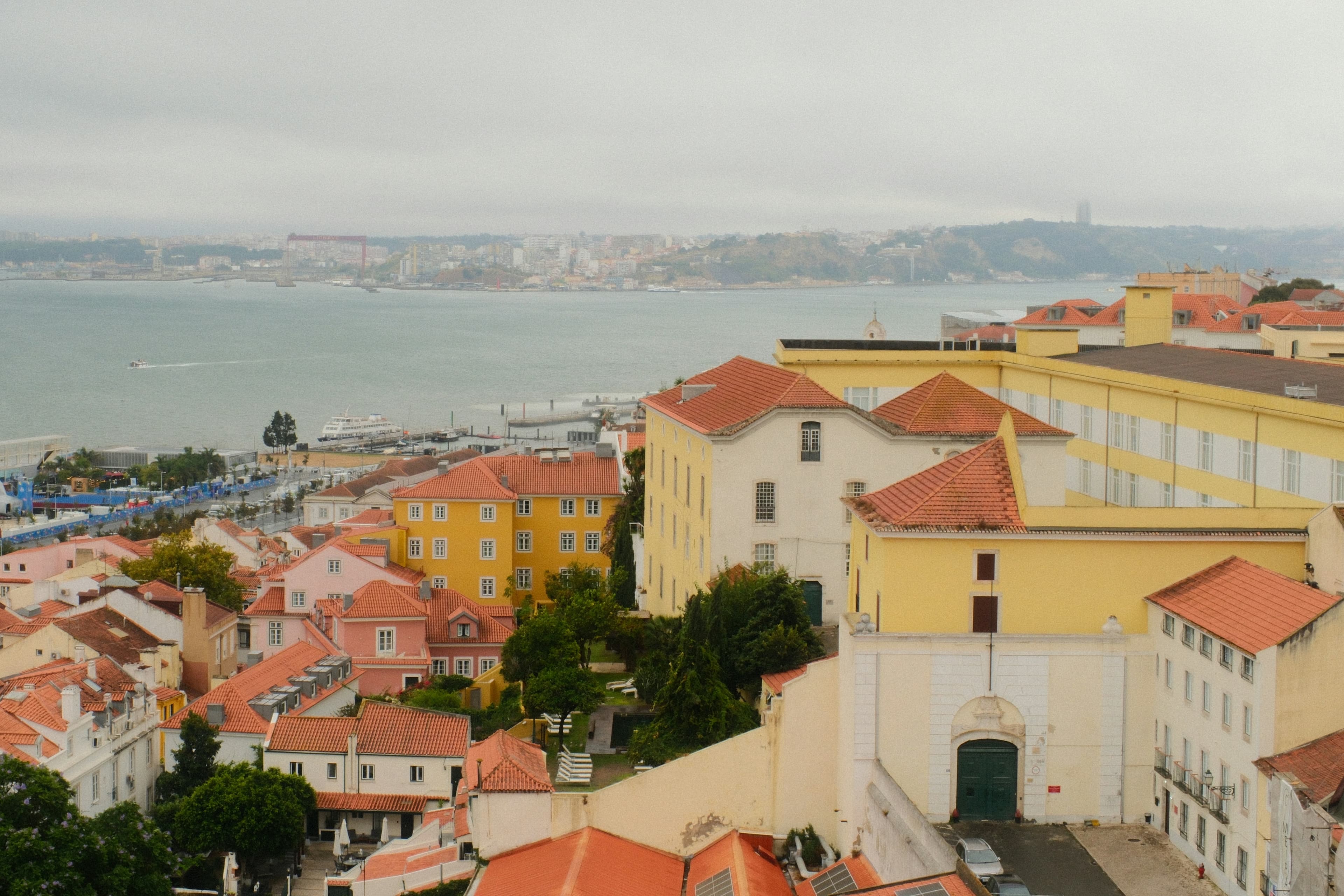
Living in Portugal without speaking Portuguese myth or reality
Between English, gestures, smiles and goodwill, many expats settle in Portugal without speaking the language. But is it really possible to integrate, work and enjoy the country without saying a single word of Portuguese?
Portugal a naturally multilingual country
Portugal is one of those rare countries where you can arrive without feeling completely lost. Young people speak English fluently, waiters switch easily between several languages, and even in public offices there’s almost always someone ready to help in French or Spanish. It’s not a myth: the Portuguese have a real talent for languages and, above all, they never make you feel bad for not speaking theirs.
In big cities like Lisbon, Porto or even Faro, it’s possible to live for months without uttering a single sentence in Portuguese. You order coffee in English, sign a bilingual contract, ask for directions with a hesitant but understood accent. It’s comfortable, almost too much so.
But behind that ease lies a deeper question: can you really live somewhere without speaking the language?
The illusion of linguistic comfort
The beginning is often deceptive. Everything seems simple, smooth, welcoming. You arrive, everyone understands you, the sun is shining, and the local market becomes your new favorite stage. Yet, over the months, an invisible border appears.
Conversations stay on the surface, exchanges shrink to gestures or a quick “thank you.” You stay inside the foreigner bubble, frequent the same cafés, the same neighborhoods, the same faces. You become a spectator of a country you think you know, but don’t truly hear.
Because in Portugal, language is not just a means of communication. It’s a key. It opens the door to a unique sense of humor, genuine warmth, and a culture where words matter just as much as silences.
The Portuguese are patient, but they quickly notice who makes an effort. A timid “obrigado,” a sincere “bom dia,” a clumsy “como está” it changes everything. These aren’t just phrases, they’re gestures of respect.
When speaking Portuguese becomes a real superpower
Expats who end up learning Portuguese all say the same thing: it’s like a new world opens before their eyes. Everything becomes easier, warmer, more authentic.
The neighbor who used to greet you politely starts joking, the local shopkeeper tells you his life story, and the city hall employee helps you fill out your forms with a knowing smile. Tense situations suddenly ease up, misunderstandings fade, and life takes on a different color.
Portuguese is a musical language, full of softness, nuance, and untranslatable words like “saudade.” That word alone says so much about the country: it speaks of nostalgia, of joyful melancholy, of a feeling that must be lived to be understood.
And to live it, you have to speak it, even just a little.
English rules in the big cities but not everywhere
Let’s be honest: it all depends on where you live. In Lisbon or Porto, English is almost a second official language. In trendy cafés, startups, or universities, everyone uses it naturally. You can build an entire life there without ever opening a Portuguese textbook.
But once you move away from the big cities, things change. In the villages of the north or the Alentejo, English becomes rare. Conversations return to their local accents, expressions take root in tradition. There, without Portuguese, you smile a lot, improvise, use your hands. It’s charming, but also a bit frustrating.
And then there’s administrative life the ultimate test of patience. Opening a bank account, registering at city hall, understanding an electricity bill or a medical note can quickly become a puzzle without at least a basic vocabulary. You always find a way in the end, but not without a few memorable misunderstandings and nervous laughs.
Learning the language a more enjoyable challenge than it seems
Learning Portuguese isn’t climbing Everest. The language has Latin roots, so French speakers have a head start. Many words can be guessed, grammar isn’t a nightmare, and the Portuguese are so patient that you can butcher their language without being judged.
The real secret is daily practice. Talk to shopkeepers, read local newspapers, listen to the radio, or simply observe how people express themselves. The Portuguese love when someone tries. They encourage you, correct you gently, and laugh with you, never at you.
And the best part is that the language comes naturally. No pressure, no shame. One day, you realize you’ve ordered your coffee, joked with the waiter, and asked about his mother without even thinking. That day, you’re no longer a visitor you’re a little bit local.
Integration always starts with words
Living in a country isn’t just about residing there; it’s about connecting. And that connection inevitably goes through language. It builds bridges, bonds, and small moments of humanity that really matter.
Expats who make the effort to speak Portuguese, even imperfectly, discover a richer, softer, truer country. They understand the jokes, the references, the songs. They share more than a landscape; they share a way of life.
Conversely, those who stay in their linguistic comfort zone often end up feeling out of sync. Portugal becomes a backdrop, not a home.
What the Portuguese think about it
The Portuguese are kind, but not naive. They know many foreigners live here without speaking their language. Some find it a pity, others find it amusing. What they value most is effort.
A strong accent, a grammatical mistake, a made-up word on the spot it all makes them smile. What they hear isn’t the error, but the intention.
Because for them, language is a sign of respect. Speaking Portuguese, even a little, is saying “I’m interested in you,” “I want to understand your country.” And it’s often that small effort that turns simple coexistence into genuine friendship.
In conclusion
Living in Portugal without speaking Portuguese is possible. Thousands of expats do it every year, successfully and happily. The country is welcoming, tolerant, and curious.
But truly living in Portugal is another story. It’s crossing that invisible barrier that separates a visitor from a resident, a tourist from a friend. It’s understanding what people say when they lower their voices, laughing at the same jokes, feeling a little Portuguese without realizing it.
Yes, you can get by without speaking Portuguese. But life is much better when you try, when you learn, when you dare to speak from the heart. Because in the end, that’s the real secret to integrating in Portugal: not being perfect, just being genuine.
Share this article
Suggested articles

Cultural Differences Between France and Portugal in Everyday Life
France and Portugal share a long common history built on respect and friendship. But living between the two countries means discovering how much small habits, ways of speaking, or daily routines differ. These cultural nuances, sometimes amusing, sometimes surprising, reveal a lot about the character of both peoples. Between lifestyle, communication, cuisine, family, or work, this is a journey into the heart of the French-Portuguese differences that make this relationship so rich.

Buy or Rent in Portugal: Which Housing Choice?
Portugal continues to attract: mild climate, vibrant culture, sunny gastronomy, and a relaxed pace of life. But when the time comes to settle or invest, one big question arises: should you buy or rent? The choice of housing, often emotional, becomes here a truly strategic decision. This guide helps you understand the differences, weigh the advantages, and choose the solution that best suits your project.

Truly Integrating into Portugal: Understanding the Local Mentality
There are countries where you arrive, unpack your bags, learn three words of the language, and think, “I’m integrated.” Portugal isn’t that kind of country. Here, integration isn’t about ticking boxes. It’s a slow conquest, a story of listening, of observation, of small gestures, and above all, of humility.

The Cost of Living in Portugal in 2025: Between Reality and Myth
For years, Portugal had that image of a small sunny paradise, where life cost almost nothing, where you could live like a king on a modest salary, and where retirees from Northern Europe came to settle down to “enjoy life.”

Mistakes to avoid when moving to Portugal
It’s a common mistake: imagining that moving to Portugal means leaving all modern life’s problems behind. The country may be welcoming, stable and warm, but it’s still a European nation with its own challenges.

The Most Popular Neighborhoods for Expats in Lisbon and Porto
Moving to Portugal has become, in recent years, a true social phenomenon. Between quality of life, mild climate, and warm hospitality, more and more expats are choosing Lisbon or Porto as their new home. But beyond clichés and postcards, each neighborhood has its own personality, atmosphere, and secrets. Let’s explore together the places most beloved by expats, where Portuguese authenticity meets modern comfort and a cosmopolitan spirit.


